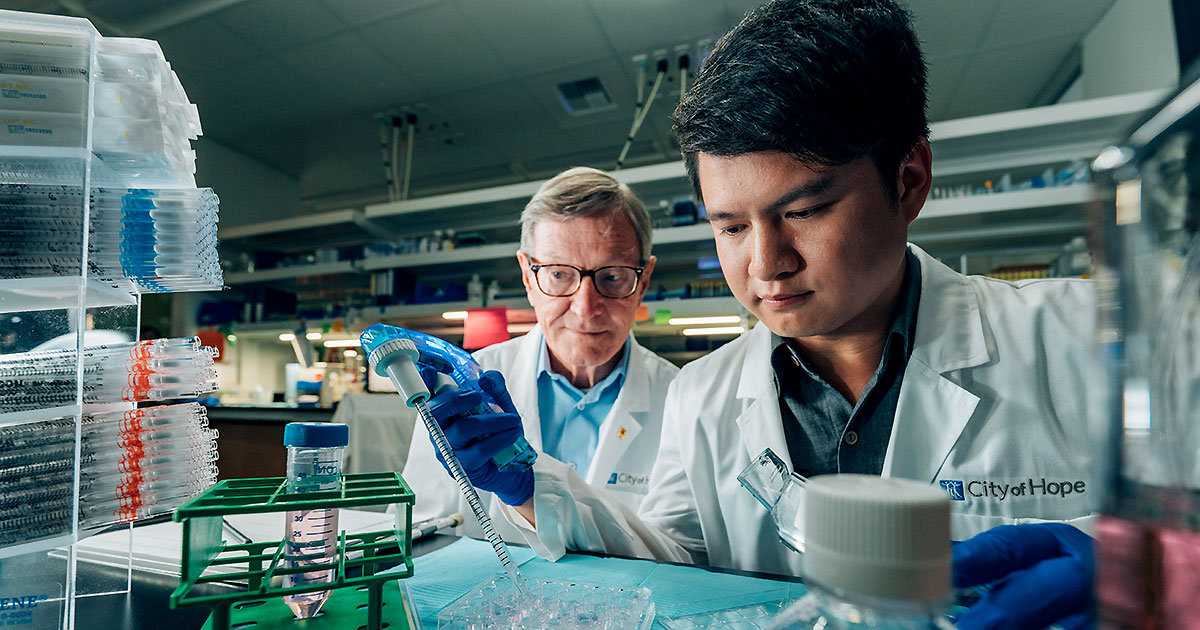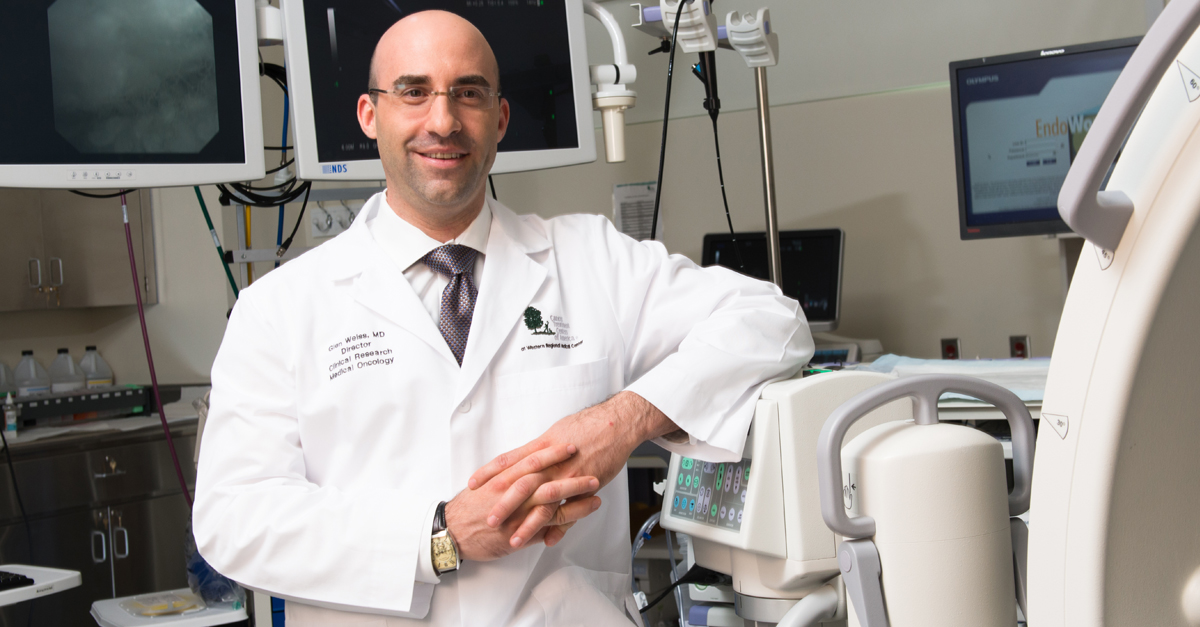
Some of the most significant and still-relevant discoveries in cancer care occurred in decades long past. The first X-ray picture was taken in 1895. Radiation therapy was first used in 1899. The Pap test was introduced in 1928. Hormone therapy for prostate cancer was developed in 1941.
But as the years flew by, research and new discoveries in cancer diagnoses and treatments accelerated. This young century alone has brought innovations and breakthroughs that have saved lives and changed the course of care. The development of the leukemia drug imatinib in 2001 ushered in the era of targeted therapy. In 2011, the U.S. Food and Drug Administration (FDA) approved the first of many immune checkpoint inhibitors, followed by chimeric antigen receptor (CAR) T-cell therapy in 2017, as immunotherapy took center stage.
But so much work has yet to be done. Cancer is the second leading cause of death in the United States, and nearly 2 million Americans will be diagnosed with the disease this year. Still, cancer researchers are optimistic that in 2024 more people will benefit from cancer breakthroughs, including research that unlocks the biology behind cancer disparities, wider access to CAR T-cell therapy and better access to clinical trials.
“Research-driven breakthroughs in cancer prevention and treatment are transforming cancer care as we know it and improving the lives of millions of patients each year,” said Robert Stone, CEO of City of Hope® and the Helen and Morgan Chu Chief Executive Officer Distinguished Chair. “At City of Hope, we are fortunate to be surrounded by health care’s leading researchers, innovators and experts, and we are extremely optimistic about the future and expect the pace of innovation in cancer care to accelerate in 2024.”
In this article we take a closer look at five predictions for 2024 that may shape the future of cancer care. They include:
- Tackling the root causes of cancer disparities
- Understanding the microbiome’s role in immunotherapy
- Prioritizing cancer prevention as a first line of treatment
- Improving access to clinical trials
- Making CAR T-cell therapy available to more patients
If you’ve been diagnosed with cancer and are interested in a second opinion on your diagnosis and treatment plan, call us or chat online with a member of our team.
Tackling the root causes of cancer disparities
Cancer does not treat everyone equally. People in families with a history of cancer have an increased risk of developing the disease. Workers who are exposed to carcinogens also have a higher risk.
Certain ethnic groups also are more likely to develop or die from cancer. For instance:
- African American men have a 111 percent higher risk of dying from prostate cancer than white men.
- Young Black women die from breast cancer at double the rate of young white women. The five-year survival rate for a Black woman with breast cancer is 81 percent versus 92 percent for white women.
- Asian/Pacific Islander adults are twice as likely to die from stomach cancer as white people.
- Hispanic women have a high rate of cervical cancer, which may be caused by the human papilloma virus (HPV).
- Hispanic men and women have the second highest rate of death from liver cancer, which may be caused by hepatitis B and C viruses (HBV and HCV).
The reasons for these disparities vary widely and are complex. They include:
Clinical: Inadequate access to health care, representation in the medical professions and involvement in clinical trials
Behavioral: Increased use of tobacco and alcohol, eating a poor diet and becoming obese
Physical: Increased likelihood of comorbidities or associated risk factors such as diabetes or hypertension
Whatever the reasons, disparities in cancer incidence and outcomes remain a concern that will receive major attention in 2024 and the years to follow, says John D. Carpten, PhD, the Irell & Manella Cancer Center Director’s Distinguished Chair and the Morgan & Helen Chu Director’s Chair of the Beckman Research Institute.
“Multidisciplinary approaches to study cancer disparities will become a bigger focus in 2024 as academic medical centers, affected communities and researchers partner to identify and mitigate those factors that dictate disproportionate incidence and mortality rates between populations,” he says.
City of Hope is making the study of cancer disparities among ethnic groups, including triple-negative breast cancer in African American women, lung cancer in the Asian population and others.
“By uncovering genetic variations and the socioeconomic risk factors behind every person’s cancer, we can offer new strategies in education, early detection and intervention,” Carpten says.
Learn more: The complexities behind cancer's racial disparities and how to address them
Understanding the microbiome’s role in immunotherapy
It’s been well established that the bacteria in our bellies—our microbiome or gut flora—play a role in our overall health. Research suggests it also can impact our cancer risk, the effectiveness of cancer treatments and the quality of survivorship.
Unhealthy gut bacteria raise the risk of several diseases and many different types of cancer, especially gastrointestinal cancers. It may also make cancer treatments less effective and is believed to play a role in cognitive issues that may result from chemotherapy or other treatments—so-called “chemo brain.” Marcel van den Brink, MD, PhD, president of City of Hope Los Angeles and National Medical Center and the Deana and Steve Campbell Chief Physician Executive Distinguished Chair, who has been researching gut flora for many years, predicts an acceleration of the research and focus on the gut microbiome in 2024, especially in how it may impact immunotherapy and stem cell transplants.
“The microorganisms in the gut modulate the immune system,” he says. “There is a direct correlation between a healthy gut and the effectiveness of immune therapies, such as CAR-T. And we are continuing to study the role the gut microbiome plays in protecting transplant patients from complications in their recovery.”
Learn more: Keeping belly bacteria balanced is key, but a challenge for cancer patients
Prioritizing cancer prevention as a first line of treatment
In many cases, it’s impossible to know what causes a specific person’s cancer. On average, a patient is diagnosed at around 65 years old, meaning a person may have had years of lifestyle behaviors, exposure to carcinogens or have other factors that may increase risk.
Cancer research institutions around the word are focusing on a concept called "precision prevention” to develop an accurate understanding of an individual's actual cancer risk. This concept combines two avenues of research:
An understanding of the molecular behavior—how the substances in human molecules develop, interact and create conditions that may lead to cell mutations.
Assessing risk stratification—developing a knowledge of the internal and external factors that may influence an individual’s cancer risk.
Researchers also are on the cusp of developing blood tests—so-called liquid biopsies—designed to detect cancer in its earliest stages when more treatment options may be available.
“City of Hope will soon launch a comprehensive research study validating a blood test developed by researchers at City of Hope and Translational Genomics Research Institute to detect cancers early," said Annette Walker, president of City of Hope Orange County. “Early detection is the key to curing cancer for many.”
Learn more: Lifestyle changes may prevent nearly half the world's cancer deaths
Improving access to clinical trials
Clinical trials offer patients access to promising new therapies long before they may otherwise be approved or made available. But many patients are unwilling to enroll in clinical trials for a variety of reasons, including:
- Inconvenience or lack or time
- Discomfort in being the subject of research
- Reluctance to receive a placebo
- Concern about drug side effects and safety
- Lack of awareness
But even willing patients cannot enroll in some trials because of rigid and outdated eligibility criteria. These obstacles often result in lower participation among older patients and those of diverse ethnicities and genders, who may have higher risks for developing certain cancers.
Digitization and decentralization—where all or some of the trial-related activities occur outside of traditional trial sites—is part of the solution, says Edward S. Kim, MD, MBA, physician-in-chief, City of Hope Orange County, vice physician-in-chief, City of Hope National Medical Center, System Director, Clinical Trials and the Construction Industries Alliance City of Hope Orange County Physician-in-Chief Chair.
“This year, we’ll see more organizations introducing scalable electronic platforms to remove barriers to trials and standardize access to them,” Dr. Kim says.
Learn more: What is a clinical trial?
Making CAR T-cell therapy available to more patients
CAR T-cell therapy is a powerful form of immunotherapy in which immune cells are reprogrammed to recognize and attack a specific protein found in cancer cells. CAR T therapy is currently only approved by the U.S. Food and Drug Administration for specific blood cancers, but researchers are exploring ways to unlock its potential to treat solid tumors.
But hospitals, doctors and patients face many challenges when considering CAR T cell therapy as a treatment option.
- Many hospitals lack the equipment and infrastructure to provide the therapy.
- Doctors may not be trained in the procedure or how to deal with adverse reactions
- Patients may face difficult side effects.
- The process is often time consuming
- The equipment, procedure and precautions required to deal with potentially adverse effects are expensive.
A priority for many cancer doctors and researchers now is to address these challenges and make CAR T-cell therapy available to more patients.
"While we are optimistic about CAR-T cell therapy, we are acutely aware that we must address health care disparities, enhance physician expertise and establish more specialized centers in more communities," said Leslie Popplewell, MD,Medical Director, Hematopoietic Stem Cell Transplantation and Cellular Therapy at City of Hope Cancer Center Atlanta. "We believe that the future of cancer care is in widening access to breakthrough cancer therapies like CAR-T."
Learn more: What happens if CAR T-cell therapy fails?
If you’ve been diagnosed with cancer and are interested in a second opinion on your diagnosis and treatment plan, call us or chat online with a member of our team.



